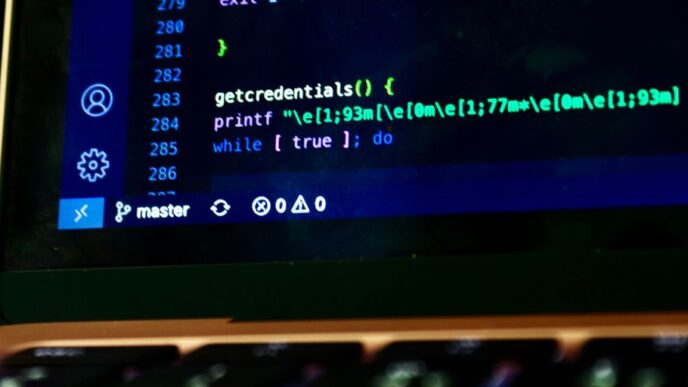Vodafone UK is taking a significant step towards enhancing internet security by testing quantum-safe technology in collaboration with IBM. This initiative aims to protect users from potential future threats posed by quantum computing, which could compromise current encryption methods.
Key Takeaways
- Vodafone UK is collaborating with IBM to test quantum-safe cryptography.
- The initiative is part of a Proof of Concept (PoC) aimed at enhancing the Secure Net service.
- Quantum computers could potentially break existing encryption, prompting the need for advanced security measures.
- IBM has developed two algorithms that are part of the U.S. National Institute of Standards and Technology’s post-quantum cryptography standards.
The Need for Quantum-Safe Technology
As quantum computing technology advances, the risk of cybercriminals exploiting these capabilities to break traditional encryption methods becomes more pronounced. Current encryption techniques may soon be vulnerable to attacks that utilize quantum computers, leading to a pressing need for quantum-safe solutions.
Cybercriminals are already employing tactics such as "harvest now, decrypt later," where they collect sensitive data now with the intention of decrypting it later when quantum computing becomes more accessible. This reality underscores the importance of proactive measures in cybersecurity.
Vodafone’s Secure Net Service
Vodafone’s Secure Net service, which is included in their Pro II Broadband packages, currently protects millions of users from various online threats, including phishing, malware, and identity theft. The integration of quantum-safe technology into this service represents a significant upgrade in safeguarding user data against future threats.
Collaboration With IBM
The collaboration with IBM is a strategic move to implement post-quantum cryptography standards into Vodafone’s existing security framework. IBM’s cryptography researchers have already co-developed two algorithms that are recognized as part of the first three post-quantum cryptography standards by the U.S. National Institute of Standards and Technology (NIST).
Luke Ibbetson, Head of R&D at Vodafone, emphasized the importance of this initiative, stating, "We want our customers to enjoy the internet without worry, now and in the future. Quantum computing could have many societal benefits, but it also poses risks to the cryptographic principles that the Internet relies on today."
Lory Thorpe, IBM’s Quantum Safe Industry Lead, echoed this sentiment, highlighting the necessity for organizations to adopt post-quantum cryptography. He stated, "Vodafone has led by example as an early adopter of post-quantum security solutions."
Future Prospects
Currently, the Proof of Concept is described as a feasibility test, and there is no timeline for when these quantum-safe features will be available to customers. However, Vodafone has expressed its commitment to introducing new, attack-resistant cryptographic algorithms across its networks and products, indicating that advancements in internet security are on the horizon.
As the digital landscape continues to evolve, the collaboration between Vodafone and IBM marks a crucial step in preparing for the future of internet security, ensuring that users remain protected against emerging threats.














